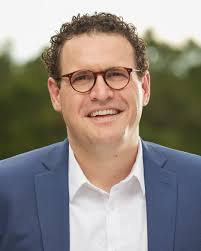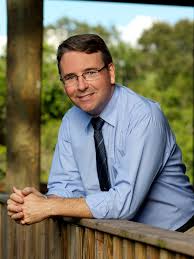Ryan Orgera, Sanibel Captiva Conservation Foundation and Rob Moher, Conservancy of Southwest Florida
As we restart our economy, we have the opportunity to learn from past mistakes in environmental management.
Florida’s economy is inextricably connected to healthy ecosystems. Businesses and citizens must ensure lawmakers do not eliminate environmental regulations in the guise of jump-starting our economy. Without healthy and clean waters, forests, wetlands, or beaches, Florida’s economic future would be bleak.
We hope we have learned a great deal from the past economic downturn when we saw the state gut environmental enforcement, staffing, and budgets and eviscerate Florida’s Growth Management Act and the agency that managed it.

At that same time, the state began years of systematically defunding key government agencies resulting in a historic loss of scientific talent from water management districts, the Department of Environmental Protection, and other agencies. We now are living with the results of how that served Florida — it put us a decade or more behind managing the restoration and protection of natural systems that sustain our economy.
The consequences took time but were predictable. Without adequate growth management laws in place, we saw massive new developments approved that are harming our environment. Growth took off, but in the wrong direction — into our sensitive rural lands, which are essential for protection of vulnerable species, water supplies and clean waters downstream. The wetlands lost in this process are integral in our Southwest Florida watersheds — they clean and filter our freshwater and act as incredible flood mitigators.
The lack of enforcement and appropriate standards added pollution from Florida’s failing water treatment plants and has exacerbated the problems. Insufficient water quality regulations continue to result in unacceptable amounts of pollution entering our waterways, further stressing impaired ecosystems.
This system reached a breaking point, and the water quality disasters of the past few years revealed the devastation these failures had on our environment, our economy, our quality of life, and our health.

Thankfully, when things get bad, citizens demand change. And change we did see. The myth that the economy was somehow separate from the care and protection of our natural resources was debunked.
We celebrated Gov. Ron DeSantis’ moves to re-establish leadership and credibility at the South Florida Water Management District Governing Board. We were, and are, encouraged with investments into Everglades Restoration projects and addressing water quality treatment as part of the massive C-43 Reservoir in the Caloosahatchee watershed.
However, all this momentum could be at risk if powerful interests have their way. Despite the massive complexity and costs, the state is moving forward with its plans to take on the Clean Water Act 404 permitting program from the Army Corps of Engineers, meaning that permits for the destruction of wetlands will be fast-tracked.
This is particularly concerning as we face three massive toll roads through some of our state’s most important wetlands. These roads would damage our water quality. The last thing we should do is fast-track wetland destruction permits.
Getting Floridians back to work and reviving our economy is essential; however, making sure it is done in a way that ensures economic viability now and in the future is paramount.
Key to this is understanding that if we wish to recover our economy, it must be done within the context of safeguarding and supporting our natural resources. Simply put, going backwards is not an attractive option. Protecting nature is protecting our economy, our quality of life, and our health.
Learn more about the Sanibel-Captiva Conservation Foundation (SCCF)’s work at sccf.org and the Conservancy of Southwest Florida’s work at Conservancy.org.
Ryan Orgera is the CEO of the Sanibel Captiva Conservation Foundation and Robert Moher is President & CEO of the Conservancy of Southwest Florida.
“The Invading Sea” is the opinion arm of the Florida Climate Reporting Network, a collaborative of news organizations across the state focusing on the threats posed by the warming climate.



